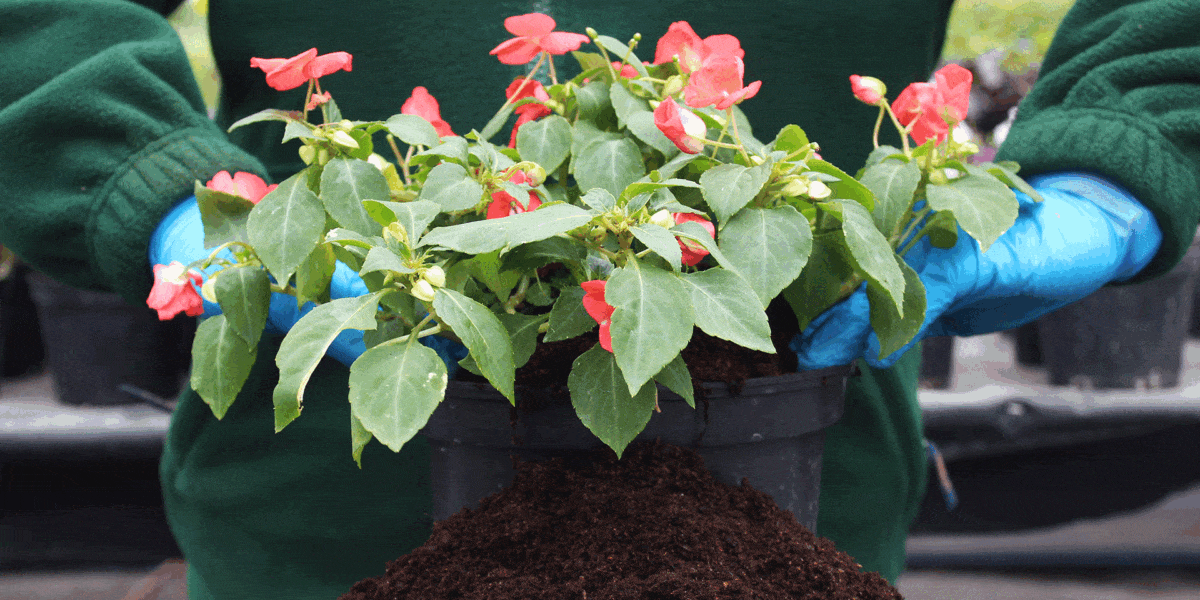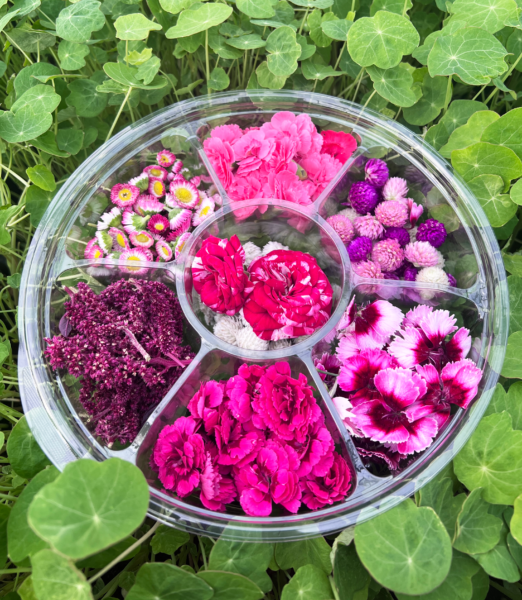 3 July 2024 | Blog
3 July 2024 | Blog
Weedkiller and the affects it can have on our plants

Nurtured in Norfolk’s gardening expert Martyn Davey answers all your questions.
If you would like any horticulture query answered please do e-mail our head grower at martyn@nurturedinnorfolk.co.uk to add your thoughts to our weekly horticulture hacks.
Dear Martyn,
Could you please help me I have some plants in pots that have been growing well until I recently topped the pots up with some well -rotted farm yard manure (as you often recommend) this was working purchased in the autumn from a local garden centre and has been outside waiting for me to have time to put it around my plants. Once I had put it on the tops of the containers most of my plants started to grow in very strange ways shorter than expected, variegated, and my rose leaves have big pink and white blotches on them. I have no Idea what is going on, is it the compost or the weather or what has happened to my plants?
M Shotsome. Dereham.
Dear Reader,
This is an alarming and not uncommon problem caused by weedkiller, Weedkillers are designed to kill unwanted plants. Unfortunately, it is all too easy to damage or even kill desirable plants if care is not taken when applying weedkillers. Since there are no remedies, prevention is best.
Weedkiller damage can occur if the wrong type of weedkiller is used or the chemical is misapplied. Always read the label before applying and choose the best method of application for your situation. Occasionally, vandalism, contaminated manure or contaminated green waste compost is to blame for weedkiller damage.
With your plants I would say it has come in through the manure you purchased. This contamination is caused by application of weedkillers to farmland used to grow hay and other forage which are then eaten by stock. In 2009/10 reports of weedkiller damage across many allotments and some gardens in the UK were traced back to farmyard and stable manures as the source of the contamination.
The damage is caused by hormone-type weedkillers, approved for use on grassland to kill broad-leaved weeds. The active ingredient responsible for most of the damage is aminopyralid. Clopyralid, found in certain lawn weedkillers as well as agricultural products can also give similar results.
The herbicide binds strongly to plant material which when consumed by cattle and horses as silage, hay or haylage, can pass through the animals without breaking down. Manure from animals fed on treated grass contains chemical residues sufficient to damage susceptible crops. Bedding materials such as straw are less likely to be affected as aminopyralid does not currently have approval for use on cereal crops from which straw is made.
The weedkiller is bound to the lignin in grass in the manure and released as undigested grass residues decay. Once released it affects many broadleaved plants. However, the weedkiller is broken down by soil bacteria and should all be eliminated by the following year.
Because the weedkiller is bound to lignin, it is difficult to detect or to test for, however gardeners can carry out a simple test at home by using the compost on a few easy to germinate seeds before applying the manure to the whole garden. This is best done using a sample of the manure mixed with garden soil and compare growth to seeds sown in just garden soil.
Scrape off any loose manure used as mulch around flowers, shrubs or fruit bushes. Return it to the suppliers or spread it on grassland. Failing this, put it in council refuse.
Fruit trees and bushes damaged by contaminated manures are likely to survive and grow well next season. Feed the plants in the spring to encourage good cropping next year.
Flowers such as phlox and delphinium that show symptoms should be cut back at the end of summer and also given a well-balanced feed next spring.
Jobs for this week in the garden.
Increase the water given to houseplants, check house plants daily and water at least twice a week when sunny.
Feed hungry shrubs and roses with fish, blood and bone now and let the rain wash it in.
Act now to keep weeds under control and prevent them from setting seed.
Martyn Davey – Head Grower

